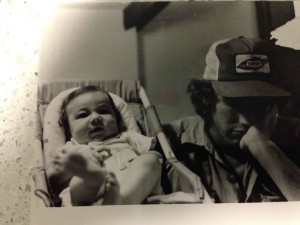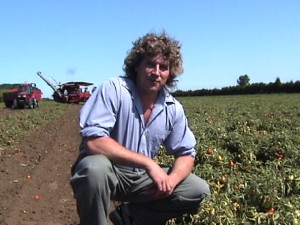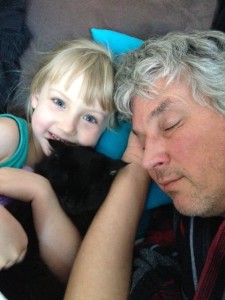The interview and podcast I did with Ken Burgin of Hospitality Magazine in Australia are now up. The podcast is available at https://barfblog.com/2014/06/no-barfing-better-food-safety-management-in-kitchens-and-restaurants-podcast/.
“The interested public can handle more, not less information about food safety. The best restaurants will not wait for government; they will go ahead and make their food safety practices available in a variety of media and brag about them”. That’s the opinion of Dr Douglas Powell, a former professor of food safety at Kansas State University, now living in Australia.
We talked recently for a podcast interview, and he had some interesting observations about how he as a consumer would like more information and reassurance about the food he eats at a cafe, a restaurant or even a community sausage sizzle. He said:
When I order meat and the server asks how I would like it done, I always say ‘At the appropriate temperature.’ Only once over the past decade has a server been able to say, We can do that’, and pulled out a tip-sensitive digital thermometer she carried around. I returned to that establishment.
If the restaurant or market advertises its food as local or sustainable, organic, natural or ‘GM free’, I ask, ‘How is that verified? Is there any testing for microbial food safety?’ Bringing soil-covered vegetables into the kitchen might be a great Instagram moment, but it’s also an opportunity for bugs and bacteria to enter what should be a sterile clean environment.
Inspection reports are only a snapshot of a particular day, but patterns can be detected over time. Recurring problems mean go somewhere else.
When diners ask to take leftovers home, does the restaurant take the remains to the kitchen (bad) or bring a clamshell to the table for the diner to take care of her own food (good)? And maybe some food safety stickers on that clamshell with date, time and reheating guidelines. It’s not hard to do with a word document and a box of address labels.
 A restaurant that cares about food safety will have its own auditors and secret diners to ensure that what management says is happening with front-line servers is actually happening. Its reputation is an asset needing constant attention.
A restaurant that cares about food safety will have its own auditors and secret diners to ensure that what management says is happening with front-line servers is actually happening. Its reputation is an asset needing constant attention.
Does management support food safety with rapid, reliable, relevant and repeated food safety information so front-line servers can at least attempt to answer basic food safety questions? Most food safety training is forgotten as soon as the student leaves the classroom – Doug finds that putting up dramatic ‘Infosheets’ is more effective, for example a recent one entitled ‘103 cases of salmonellosis linked to church fundraiser meals’. You can download and print more from the barfblog.com.
Is there equipment for proper hand washing? Vigorously running water, soap and paper towels? Hot air hand dryers are not a substitute for disposable towels.
Are steps taken to prevent cross-contamination? This shows up repeatedly in restaurant inspection reports. Separate utensils and storage for cooked and raw food is basic practice, but not for some operators.
‘What’s in that dip?’ has become my standard question at many Australian restaurants. Usually they use raw eggs, and the outbreaks keep piling up. I choose something else.
Raw produce is problematic. Does that sandwich have raw sprouts? Where did that lettuce or spinach come from? Was it grown with good agricultural practices, because washing ain’t going to do much. This is a challenge for the fans of ‘paddock to plate’ – it should not mean ignore the cleaning.
 Are employees vaccinated against Hepatitis A? Do employees work when they are sick with norovirus – it happens every week somewhere in the US. It’s easy for Australian businesses to become complacent about ‘overseas’ problems.
Are employees vaccinated against Hepatitis A? Do employees work when they are sick with norovirus – it happens every week somewhere in the US. It’s easy for Australian businesses to become complacent about ‘overseas’ problems.
Does the restaurant welcome questions and support disclosure systems?
That’s a lot of questions when I just want to go out on the town with my youngest daughter, but I ask these routinely and learn a lot. Curiosity has its benefits.

